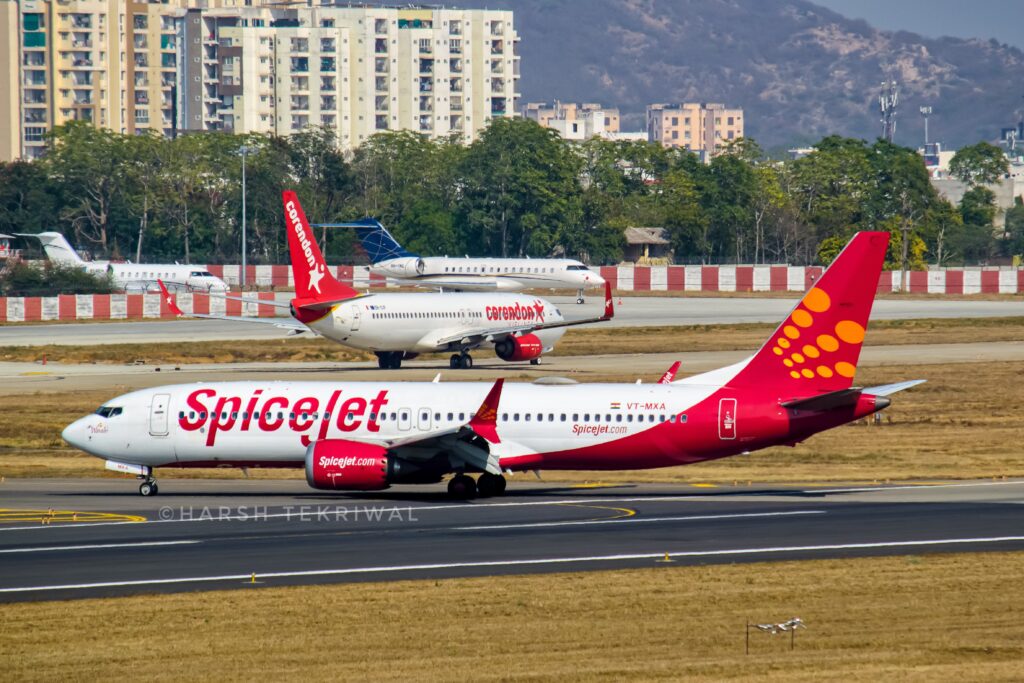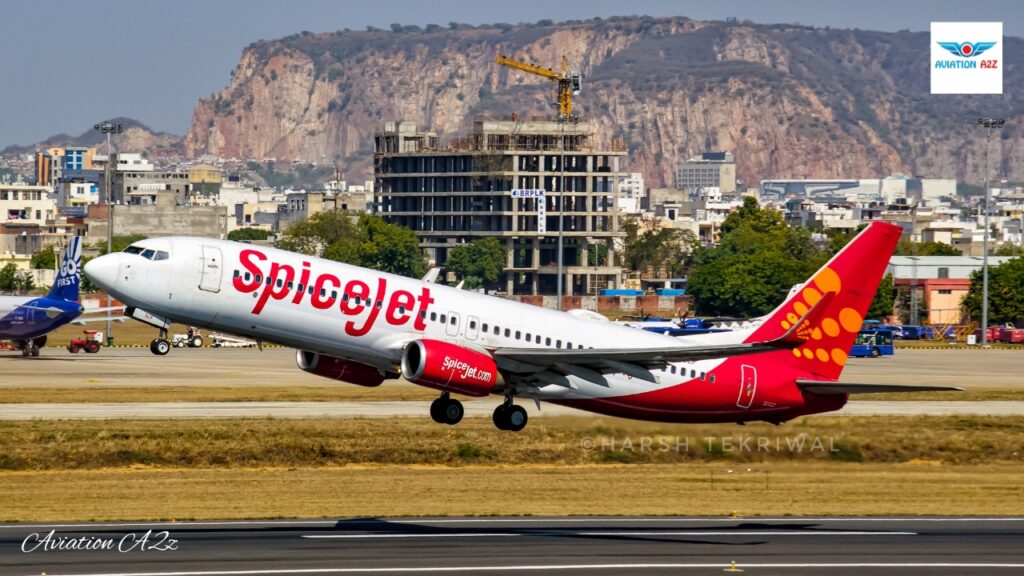GURUGRAM- At a time when the Indian aviation landscape is expected to report the highest passenger traffic numbers and most airlines in the country are expanding operations, one of the country’s oldest airlines, SpiceJet (SG), has decided to reduce the scale of its Flight operations.
As part of the upcoming summer schedule 2024, which starts on March 31 and ends on October 26, SpiceJet has indicated that it will operate 26 percent fewer weekly Spicejet flights.

SpiceJet Cuts Summer Flights by 20%
SpiceJet noted that its capacity has steadily increased with the return of each aircraft to service.
“Our operational fleet was at 32 in September 2023, and it has since grown to 39 as of March 2024,” stated an airline spokesperson to Moneycontrol.
SpiceJet announced it will enhance its capacity to ensure seamless connectivity and improved services. As part of this effort, the airline plans to introduce ten additional aircraft to bolster capacity for the upcoming busy summer schedule and beyond.
Additionally, two A340 wide-body aircraft will be dedicated specifically for Haj operations.
The airline has approved a total of 1,657 weekly flights for the upcoming summer schedule. This marks a decrease from the 2,240 flights planned for the ongoing winter schedule and the 2,132 flights planned for the previous summer schedule.
“During the previous year, SpiceJet had applied for 30 percent fewer planned flights than the summer schedule 2022.
In July 2023, the Director General of Civil Aviation (DGCA) directed the airline to operate only 50 percent of its planned flights following at least eight reported incidents of technical malfunctions between June 19, 2023, and July 5, 2023.
Additionally, the executive noted that while the airline aims to boost capacity, it faces challenges due to heightened competition for pilots and escalating aircraft lease costs in the country.
“SpiceJet currently operates a fleet of 33 operational aircraft, including eight wet-leased planes, and employs around 400 pilots. With the introduction of the new Flight Duty Time Limitations (FDTL) norms in June.
The airline anticipates a requirement for an additional 60 to 90 pilots to maintain the same flight schedule as the winter schedule,” the executive explained.

SpiceJet Faces Pilot Shortage
The executive mentioned that despite plans to expand capacity, SpiceJet faces obstacles due to heightened competition for pilots and increasing aircraft lease costs.
Currently, the airline operates a fleet of 33 aircraft, including eight wet-leased planes, with approximately 400 pilots on its staff. However, with the implementation of new Flight Duty Time Limitations (FDTL) regulations in June, an additional 60 to 90 pilots will be required to maintain the same flight schedule as the winter schedule.
Moreover, a shortage of Boeing-737 certified pilots in the domestic market is exacerbated by competitors such as Akasa Air (QP) and Air India’s (AI)LCC, which are actively recruiting from the same talent pool. Consequently, SpiceJet has been compelled to reduce its planned flying capacity to avoid further scrutiny by the DGCA.
Staff Reductions
The airline recently announced the layoff of 1,400 employees, representing nearly 15 percent of its workforce, to reduce costs and retain investor interest.
The secondary leasing market has become expensive, making it difficult for Indian airlines to acquire aircraft. SpiceJet’s fundraising efforts have been hindered despite attempting to raise funds by issuing shares and debentures.
Additionally, ongoing litigation with the previous owners of the airline, the Marans, adds to SpiceJet’s financial burden.
Despite its peak in 2019, where it operated a fleet of 118 planes and employed 16,000 individuals, SpiceJet’s market share has dwindled to 4 percent, with Akasa Air emerging as its closest competitor in terms of market share.
Stay tuned with us. Further, follow us on social media for the latest updates.
Join us on Telegram Group for the Latest Aviation Updates. Subsequently, follow us on Google News.

